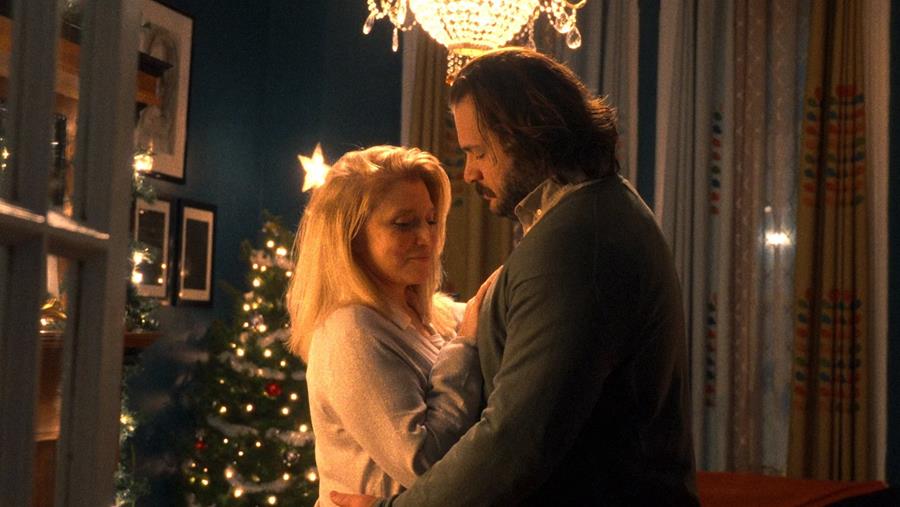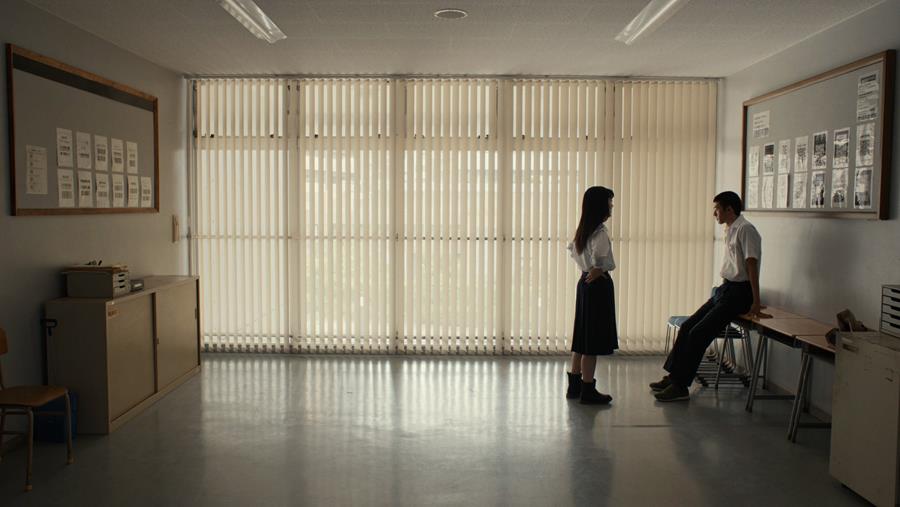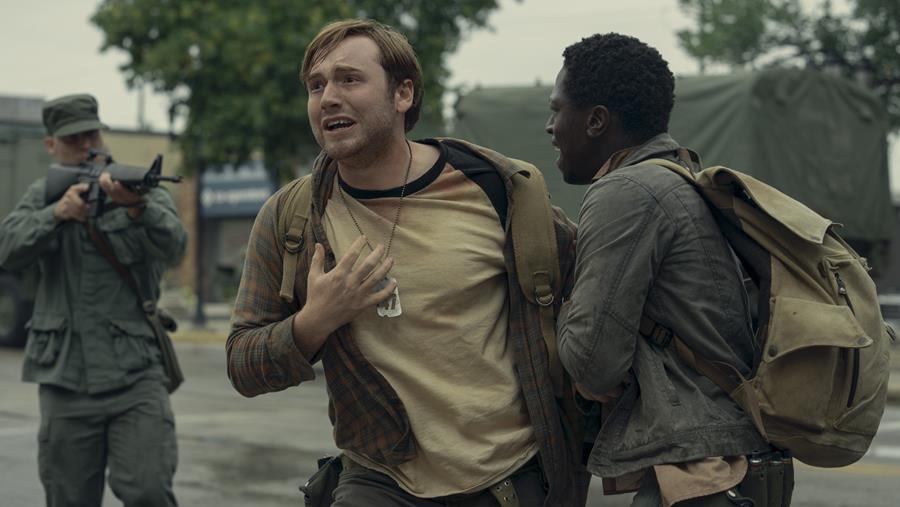
If you have the same answer to “What is your favorite season?” as Moira Rose, the next few months are your time to shine.
September saw the first batch of contenders and also-rans arrive in theaters, though which movies fall into which category won’t be known for several months. Awards season certainly doesn’t need to be as long as it is, but the industry demands it — and, based on the reception to a few buzzy titles, so do audiences.

2025 is the year of cinematic siblings going solo. Ethan Coen led the charge with Honey Don’t! and Benny and Josh Safdie are throwing their hats in the prestige-picture ring with The Smashing Machine and Marty Supreme, respectively. The best of the bunch so far is Jay Duplass’ The Baltimorons, a seasonal love letter to a city whose inbox is usually empty that manages to be feel-good and bittersweet all at once. The same is true of its protagonist, whom we meet in the midst of a failed suicide attempt played for laughs — a delicate balance that, like most else in co-writer/director Jay Duplass’ first movie without his younger brother Mark, largely works. It’s Christmas Eve, and a dental emergency sends newly sober Cliff (Michael Strassner, who co-wrote the script) away from his fiancée and into the office of Didi (Liz Larsen), whose holiday plans have likewise been foundered. There’s a bit of a Harold and Maude vibe to Cliff and Didi’s budding relationship despite their age gap being considerably smaller, and Larsen’s magnetic performance will have you wondering why she hasn’t been getting juicy roles like this for decades. You can surely guess where this is going — a will-they-or-won’t-they night of hijinks, questionable decisions, and soul-baring conversations — but, like a good Christmas present, The Baltimorons isn’t any less enjoyable just because it’s predictable.

Movies set in the near future are rarely optimistic about what life might be like a few years or decades from now. Ironic title notwithstanding, Happyend is no exception. Like the best exemplars of the genre, Neo Sora’s follow-up to Ryuichi Sakamoto: Opus is compelling – and, in its way, unsettling — because of how plausible it is. Tokyo lives under constant threat of a devastating earthquake that anyone who hails from certain parts of the world will relate to on a visceral level; the (Really) Big One is inevitable, not probable, and the people of Japan know it better than anyone. Even so, the high schoolers at the center of this story are more focused on getting through the school day than they are on the near-constant earthquake alerts that may or may not precede utter ruin — so much so, in fact, that they fail to consider the consequences of an ill-advised prank that turns their school into a surveillance state.
Sora is keenly aware that living in the world for the last decade has made it easy to be pessimistic about whatever awaits us in the next one, but Happyend isn’t a downer so much as an early-detection system. News headlines are projected onto clouds in blood-red lettering like something out of Blade Runner, most of them about anti-government protests turning violent; as one student puts it, “that tyrant is faking an emergency to try and run a dictatorship.” As the situation unravels, the high school becomes a microcosm of society in which those in power use dubious pretexts to assert even more control over the populace. Talk about unrealistic!

“Anyone can win” the Long Walk, but everyone who doesn’t dies. Adapted from the first novel Stephen King ever wrote, which precedes similar you-win-or-you-die fare like Battle Royale and The Hunger Games by decades, The Long Walk has the same vague backstory as most dystopian fiction: more than a decade after an unspecified war, the country is economically devastated and perfectly happy to get its entertainment — and, if you believe the propaganda, sense of national pride — from the spectacle of watching 50 young men on a deathmarch. Forty-nine will die, one will win a cash prize and be granted a wish of his choosing. It’s clear from the outset that we’re meant to root for Ray Garraty (Cooper Hoffman) and/or Peter McVries (David Jonsson), fast friends with wildly different reasons for volunteering.
Hoffman, son of the late Philip Seymour, once again shows he’s very much his father’s son in another nuanced, emotionally rich performance. His energy is matched and then some by Jonsson, who’s even more magnetic here than he was in Rye Lane and Alien: Romulus — the two have you hoping against hope that both of them can win this deadly game. Ray and Peter help each other stay above the minimum pace of three miles per hour as the sinister Major (Mark Hamill) rides alongside them in a military vehicle, all while actual director Francis Lawrence (who, probably not coincidentally, helmed three Hunger Games movies) keeps the narrative moving. There’s misery on the journey, but also camaraderie; as Peter puts it, “a short friendship’s better than no friendship.”

It isn’t easy, consistently liking Paul Thomas Anderson movies less than everyone else, but apparently someone has to do it. Another ambitious, expertly made epic that nevertheless left me cold, One Battle After Another typifies the PTA experience: craftsmanship so masterful it distracts you from the fact that the movie has little of note to say. (The major exceptions are Boogie Nights and Phantom Thread, both of which deserve their reputation and then some.) That formal mastery once again extends to the other side of the camera, as Leonardo DiCaprio is nearly as superlative here as Joaquin Phoenix was in The Master and Daniel Day-Lewis was in There Will Be Blood.
After an extended prologue that takes place 16 years before the main action and sees most members of a far-left radical group calling itself French 75 either dying or being captured, One Battle After Another turns its attentions to The Problems of Today, all of them underlined and highlighted like notes from a lecture by someone who actually knows what they’re talking about. DiCaprio’s isn’t the only remarkable performance, as Chase Infiniti (as his daughter), Benicio del Toro (as his karate sensei), and Teyana Taylor (as his wife) are equally great — Anderson is supremely skilled at guiding his performers to exemplary performances. But while this story of an ex-revolutionary who’s less concerned with the cause than he is with saving his daughter proves zippily entertaining enough for its 162-minute runtime to never feel like a chore, One Battle After Another has the same problem as Anderson’s other would-be masterpieces: fading from the mind as soon as the credits roll.